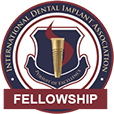June 5th, 2018

That ache in your head may stem from your jaw. If your jaw falls out of alignment, you could have temporomandibular joint disorder, or TMD.
It's not clear what causes TMD. Obesity may factor in. Stress and pressure on the jaw may also contribute. A misaligned bite (that is, where your upper and lower teeth don't fit together when you close your mouth) may cause TMD symptoms, too.
TMD can affect your life and your health by making it painful to eat and hard to sleep. Some people find the nagging pain difficult to bear.
Symptoms of TMD include:
- Recurring headaches with no other cause
- Pain along and behind your ears
- Pain in your cheeks or lower face
- Clicking noises when you talk or chew
- Tired or sore jaw muscles after eating
- Limited jaw movement
If you experience the symptoms listed here, make an appointment with our office. We’ll take an X-ray to look at your bite, and determine if TMD could be the culprit. If you have TMD we can offer a number of treatments, including:
- Relaxation and stress reduction techniques
- Pain reduction recommendations, which might involve visualization or medication
- Jaw joint exercises that can help reduce stress and improve your alignment
Left untreated, TMD headaches and other symptoms can become quite severe. If you suffer the symptoms of TMD, you do not have to live in pain. Make an appointment at our Lebanon, NJ office to learn how we can reduce your pain and restore comfort to your life.
May 29th, 2018

If you suffer from sensitive teeth, you already know the frustration of having a type of pain that is hard to deal with. Because tooth sensitivity is sometimes unpredictable, you can't necessarily take medication to ward off the pain like you could if you just felt a headache coming on.
However, there is still something you can do about sensitive teeth. Use the following tips to help put your sensitivity and pain problems with your teeth behind you!
Use the Right Toothbrush: Select a toothbrush made just for sensitive teeth, or the softest bristles possible. This helps you avoid putting any extra pressure on your teeth or gums.
Choose a Special Toothpaste: There are several good options for toothpastes made just for sensitive teeth today. Usually, toothpaste formulated for sensitive teeth will be fluoridated and use a non-abrasive formula. The toothpaste will help with the pain usually associated with brushing and flossing if you use it regularly.
Avoid Trigger Foods: You may have noticed certain trigger foods that cause tooth sensitivity and pain for you. Avoid these foods whenever possible, and if you absolutely must eat them, try to consume them in very small quantities. Trigger foods may include:
- Foods with high acid content for example citrus fruits
- Very hot or very cold foods
- Hard or crunchy foods
Visit Our Office
If your sensitive teeth problem is too serious to manage on your own, a visit to our Lebanon, NJ office may be in order. There are a couple of ways Dr. DeCasperis can help:
- Fluoride Treatments: We can put a special fluoride formula on the most sensitive areas to help make your enamel stronger and to help lower pain levels.
- Sealing Exposed Roots:In some cases, your roots become exposed due to a receding gumline, which in turn causes teeth sensitivity and pain. We can apply a dental sealant that protects the exposed roots and reduces your pain dramatically.
May 22nd, 2018

People who have diabetes are usually familiar with many of the other health risks they face, including damage to the nerves, eyes, heart, and kidneys. But did you know that if you have diabetes you also have a much greater chance of developing gum disease? It's true, and like other diseases related to diabetes, the risk potential severity of gum disease is directly related to how well blood sugar is controlled.
The Causes
In diabetics, there are two primary mechanisms that increase the risk of developing gum disease, also called periodontal disease:
- Bacterial growth: Bacteria love sugar including the glucose found in blood and bodily fluids. Elevated levels of sugar in saliva can provide a very hospitable environment for bacterial growth. The risk may be elevated if your gums bleed.
- Circulatory changes: In diabetes, the blood vessels become thick, making it more difficult for blood to carry oxygen to the gums and to carry away harmful waste products. This decrease in circulation can weaken the mouth's natural resistance to decay. If you smoke, circulation can become even more compromised, significantly increasing your risk of periodontal disease.
Preventing Gum Disease
If you're diabetic, the number-one key to preventing gum disease is to make sure you do all you can to keep your blood sugar under control. In fact, studies show diabetics who have excellent control of their blood sugar levels have no more risk for gum disease than those who don't have diabetes. Here are some other tips to keep your gums healthy:
- Floss your teeth gently, curving the floss so it can gently reach just below your gum line to remove plaque and food particles. Rinse your mouth when you're done flossing.
- Use a soft-bristle brush to brush teeth twice daily, using small circular motions. Avoid pressing too hard on tooth surfaces.
- Brush your tongue gently to remove germs that can hide there.
- Use an anti-bacterial mouthwash to kill germs that are hard to reach.
- Keep track of how well your blood sugar is controlled and let Dr. DeCasperis know at each visit.
- Be aware that having diabetes may mean it takes you longer to heal after undergoing oral surgery.
Most importantly, be sure to visit our Lebanon, NJ office for regular checkups and tell Dr. DeCasperis about your diabetes so you can be sure to get the care you need. Follow these steps, and you can enjoy healthy teeth and gums for years to come.
May 15th, 2018

Our team at Dr. Steven DeCasperis, DMD will tell you brushing on a regular basis is critical for a healthy mouth, but you can definitely overdo a good thing. Known as “toothbrush abrasion,” over brushing can lead to sensitive teeth and receding gums, not to mention the wearing down of the protective layers of your tooth enamel. Over brushing can also push back your gums, and in the process, expose the dentin layer under the enamel.
“So, how do I avoid over brushing?”
- Use a soft or extra-soft bristled toothbrush to prevent gum damage and wear on the soft tooth dentin
- Keep in mind which direction bristles face when you brush. They should be perpendicular, not parallel. Place the head of your toothbrush with the tips of the bristles at a 45-degree angle to the gum line and brush away!
- Move the toothbrush with short strokes and a scrubbing motion, several times in each spot – don’t saw back and forth across the teeth with your toothbrush.
- Apply just enough pressure to feel the bristles against the gums. If you are squashing the bristles, you're brushing too hard.
- Replace your toothbrush when you notice frayed and bent bristles.
- Brush for two minutes at a time
If you have any questions about proper brushing techniques, ask us about it at your next appointment or give us a call today!










